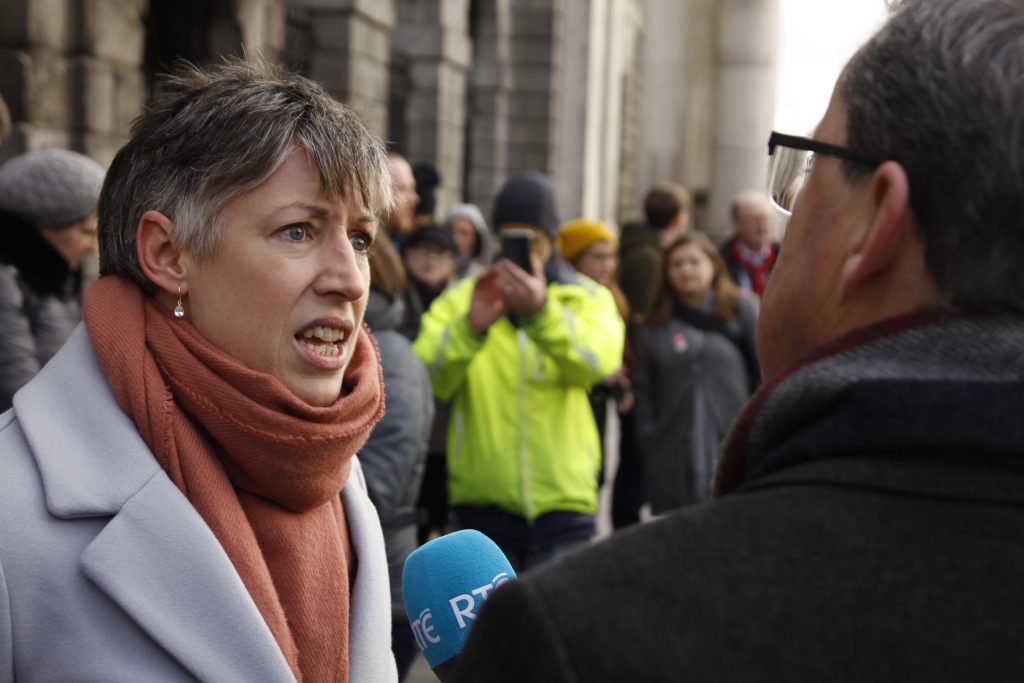New Bill a ‘retrograde’ step in access to justice rights

November 23rd, 2019
New planning legislation set to be proposed by the Government includes “retrograde proposals” aimed at restricting access to justice for both individuals and NGOs, an environmental law expert has warned.
Speaking at a conference on environmental law in Dublin yesterday, Dr Andrew Jackson said that the Housing and Planning and Development Bill includes worrying proposals on costs and citizen rights to bring judicial review (JR) proceedings over planning issues.
Environmental groups, citizens’ groups, and other legal professionals, including the heads of FLAC and the Irish Council for Civil Liberties have also outlined their concern with the proposed piece of legislation.
While individuals and groups can appeal local authority planning decisions to An Bord Pleanála, decisions made by the national planning authority can only be challenged through JR proceedings, a costly and time-consuming process.
The Heads of the Bill, sent to the Joint Oireachtas Committee for Housing, Planning and Local Government earlier this month, outline plans to restrict an individual’s standing rights to challenge planning decisions.
The wording of the Heads, seen by The Green News, states that individuals would have to show that they have “substantial interest” in the case and that they would be directly affected by the proposed development in a way that is peculiar or personal to them.

Standing issues
Dr Jackson, a UCD lecturer and practicing solicitor, said that this proposal “mirrors” our previous position that we had to change following European court decisions that forced us to change tack and accept a lower threshold of “sufficient interest” in order to bring a case.
The current system is far more in line with the European Commission’s position on access to justice in environmental matters that outlines an obligation to provide wide access to justice for individuals.
Under the proposed new Bill, environmental NGOs would need to be active in the field of environmental protection for at least three years and have at least 100 members, ruling out a large cohort of both local and national groups across the country.
“The three years thing would kill off the standard mode of reaction for local groups who react to a project being proposed, form a group and look to engage in environmental democracy,” added Dr Jackson, who is also on the Climate Case Ireland legal team.
“Just as young people are on the streets calling for climate justice and environmental justice, the Government is proposing to restrict opportunities to access environmental justice,” he said.

Costs problems
Dr Jackson also questioned proposals in the Bill to row back on our “relatively good” costs system that is largely in line with international and European principles that costs should “not be prohibitively expensive” in environmental cases.
The current costs regime allows for each side to bear their own costs and successful litigants may be awarded certain costs if they are successful. This can make it possible to engage with lawyers on a no foal, no fee basis.
The proposed Bill would see a cost capping system put in place, imposing a cap of €5000 for individuals and €10,000 for groups, as well as a limit on awards in successful challenges of €40,000.
This is similar to the UK system where costs are capped at the beginning of a case so that individuals or NGOs know how much it will cost them at the start of the process.
According to Gillian Lobo, a British lawyer with the non-profit environmental law charity ClientEarth, the system has “narrowed the ability to use Judicial Review” as the costs, although limited, are still prohibitively expensive for many groups to bring a case forward.
In addition, the UK cap on awards of £35,000 – similar to the level proposed by the Irish Government – means that successful groups are unable to “recover enough to pay lawyers unless they are doing it cheaply or pro bono”.
“Eventually they can’t afford this in the long term as they’re got to make a living and then those services aren’t going to be there anymore [for NGOs],” she warned.
Dr Jackson added that the proposed cost cap system “clearly provides less effective access to justice”. But, he said, “that is clearly the policy aim”.
The conference also heard about emerging case law in relation to protecting the natural environment including the case for tougher penalties for wildlife crime.
Delegates also heard about the role of law in delivering on the Paris Agreement, as well as discussions on the current legal and regulatory framework for waste management.
The conference was co-hosted by the Environmental Protection Agency (EPA) and the Irish Centre for European Law (ICEL). The event was opened by the Chief Justice, Mr Justice Frank Clarke.
[x_author title=”About the Author”]







